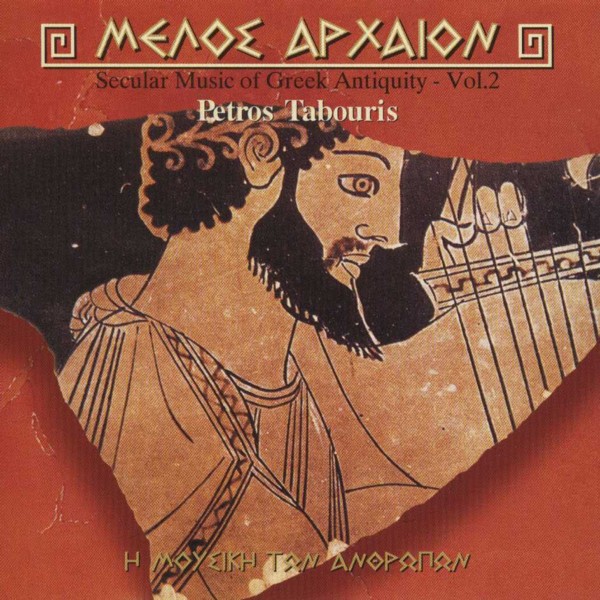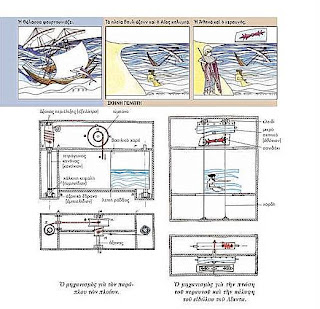
Minerva, the goddess of wisdom, was the daughter of Jupiter. She was said to have leaped forth from his brain, mature, and in complete armor. She presided over the useful and ornamental arts, both those of men—such as agriculture and navigation—and those of women,—spinning, weaving, and needlework. She was also a warlike divinity; but it was defensive war only that she patronized, and she had no sympathy with Mars’s savage love of violence and bloodshed. Athens was her chosen seat, her own city, awarded to her as the prize of a contest with Neptune, who also aspired to it. The tale ran that in the reign of Cecrops, the first king of Athens, the two deities contended for the possession of the city. The gods decreed that it should be awarded to that one who produced the gift most useful to mortals. Neptune gave the horse; Minerva produced the olive. The gods gave judgment that the olive was the more useful of the two, and awarded the city to the goddess; and it was named after her, Athens, her name in Greek being Athene.
There was another contest, in which a mortal dared to come in competition with Minerva. That mortal was Arachne, a maiden who had attained such skill in the arts of weaving and embroidery that the nymphs themselves would leave their groves and fountains to come and gaze upon her work. It was not only beautiful when it was done, but beautiful also in the doing. To watch her, as she took the wool in its rude state and formed it into rolls, or separated it with her fingers and carded it till it looked as light and soft as a cloud, or twirled the spindle with skilful touch, or wove the web, or, after it was woven, adorned it with her needle, one would have said that Minerva herself had taught her. But this she denied, and could not bear to be thought a pupil even of a goddess. “Let Minerva try her skill with mine,” said she; “if beaten I will pay the penalty.” Minerva heard this and was displeased. She assumed the form of an old woman and went and gave Arachne some friendly advice. “I have had much experience,” said she, “and I hope you will not despise my counsel. Challenge your fellow-mortals as you will, but do not compete with a goddess. On the contrary, I advise you to ask her forgiveness for what you have said, and as she is merciful perhaps she will pardon you.” Arachne stopped her spinning and looked at the old dame with anger in her countenance. “Keep your counsel,” said she, “for your daughters or handmaids; for my part I know what I say, and I stand to it. I am not afraid of the goddess; let her try her skill, if she dare venture.” “She comes,” said Minerva; and dropping her disguise stood confessed. The nymphs bent low in homage, and all the bystanders paid reverence. Arachne alone was unterrified. She blushed, indeed; a sudden color dyed her cheek, and then she grew pale. But she stood to her resolve, and with a foolish conceit of her own skill rushed on her fate. Minerva forbore no longer nor interposed any further advice. They proceed to the contest. Each takes her station and attaches the web to the beam. Then the slender shuttle is passed in and out among the threads. The reed with its fine teeth strikes up the woof into its place and compacts the web. Both work with speed; their skilful hands move rapidly, and the excitement of the contest makes the labor light. Wool of Tyrian dye is contrasted with that of other colors, shaded off into one another so adroitly that the joining deceives the eye. Like the bow, whose long arch tinges the heavens, formed by sunbeams reflected from the shower, 1 in which, where the colors meet they seem as one, but at a little distance from the point of contact are wholly different
Minerva wrought on her web the scene of her contest with Neptune. Twelve of the heavenly powers are represented, Jupiter, with august gravity, sitting in the midst. Neptune, the ruler of the sea, holds his trident, and appears to have just smitten the earth, from which a horse has leaped forth. Minerva depicted herself with helmed head, her Ægis covering her breast. Such was the central circle; and in the four corners were represented incidents illustrating the displeasure of the gods at such presumptuous mortals as had dared to contend with them. These were meant as warnings to her rival to give up the contest before it was too late. 3
Arachne filled her web with subjects designedly chosen to exhibit the failings and errors of the gods. One scene represented Leda caressing the swan, under which form Jupiter had disguised himself; and another, Danaë in the brazen tower in which her father had imprisoned her, but where the god effected his entrance in the form of a golden shower. Still another depicted Europa deceived by Jupiter under the disguise of a bull. Encouraged by the takeness of the animal Europa ventured to mount his back, whereupon Jupiter advanced into the sea and swam with her to Crete. You would have thought it was a real bull, so naturally was it wrought, and so natural the water in which it swam. She seemed to look with longing eyes back upon the shore she was leaving, and to call to her companions for help. She appeared to shudder with terror at the sight of the heaving waves, and to draw back her feet from the water
Arachne filled her canvas with similar subjects, wonderfully well done, but strongly marking her presumption and impiety. Minerva could not forbear to admire, yet felt indignant at the insult. She struck the web with her shuttle and rent it in pieces; she then touched the forehead of Arachne and made her feel her guilt and shame. She could not endure it and went and hanged herself. Minerva pitied her as she saw her suspended by a rope. “Live,” she said, “guilty woman! and that you may preserve the memory of this lesson, continue to hang, both you and your descendants, to all future times.” She sprinkled her with the juices of aconite, and immediately her hair came off, and her nose and ears likewise. Her form shrank up, and her head grew smaller yet; her fingers cleaved to her side and served for legs. All the rest of her is body, out of which she spins her thread, often hanging suspended by it, in the same attitude as when Minerva touched her and transformed her into a spider.
Spenser tells the story of Arachne in his “Muiopotmos,” adhering very closely to his master Ovid, but improving upon him in the conclusion of the story. The two stanzas which follow tell what was done after the goddess had depicted her creation of the olive tree:
“Amongst these leaves she made a Butterfly,
With excellent device and wondrous slight,
Fluttering among the olives wantonly,
That seemed to live, so like it was in sight;
The velvet nap which on his wings doth lie,
The silken down with which his back is dight,
His broad outstretched horns, his hairy thighs,
His glorious colors, and his glistening eyes.” 2
“Which when Arachne saw, as overlaid
And mastered with workmanship so rare,
She stood astonied long, ne aught gainsaid;
And with fast-fixed eyes on her did stare,
And by her silence, sign of one dismayed,
The victory did yield her as her share:
Yet did she inly fret and felly burn,
And all her blood to poisonous rancor turn.”










